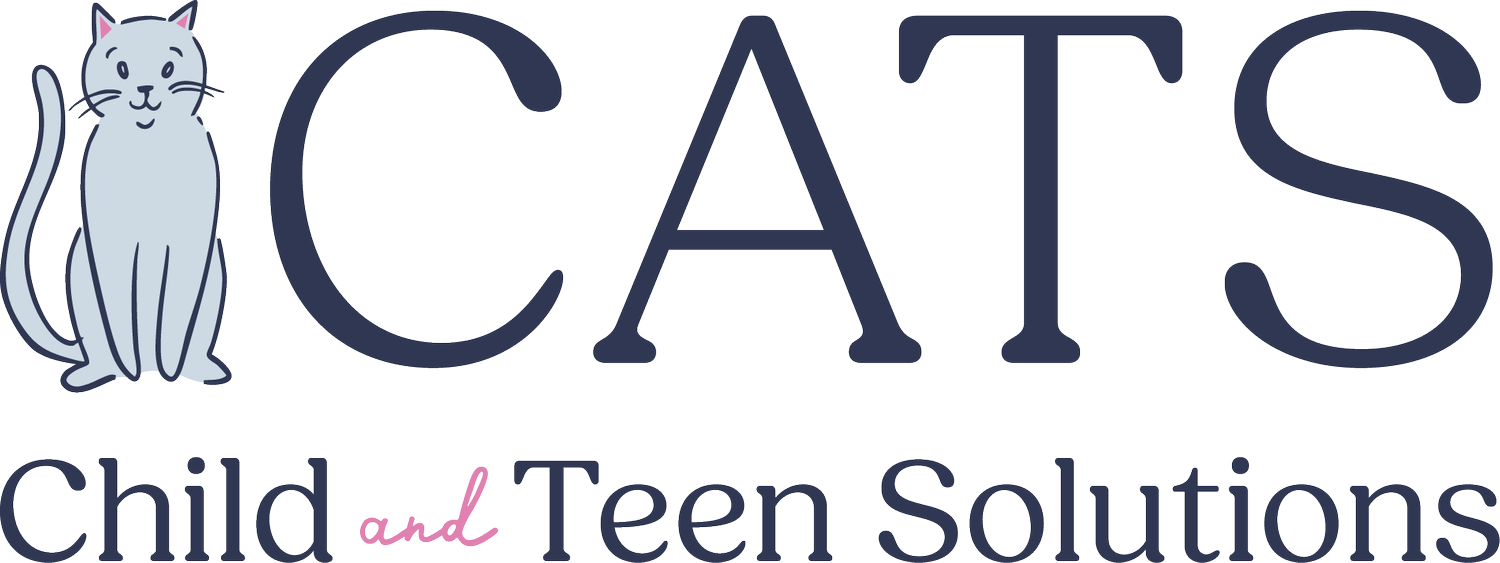
Parent Coaching in Seattle, Washington for Families with Children and Teens
We use the term “parent” to represent any adult who is in a caregiving role to a child or teen.
Parents, we’re here to equip you as an agent of positive change for your child
In a way, we already know your child.
Challenges that parents bring to us tend to cluster around certain themes. Children who can’t take no for an answer, who get furious when they can’t have their way, who have meltdowns in response to seemingly small triggers, who stall at bedtime, who won’t sit still at meals, who badger their parents as a way to get what they want, and who are anxious and impose certain requirements on their parents.
As difficult as this list may sound, we love these kids!
We find that kids who are challenging to parent are often creative, joyful, affectionate, loyal, sweet, empathetic, talented, and just plain fun to be around. We have a deep appreciation for the complexities of the children we help.
We are also probably familiar with your experiences as a parent.
You may find yourself having to repeat yourself 20 times, raise your voice, and threaten to take something away before your child will take you seriously.
Perhaps you’ve felt helpless and had a meltdown yourself, only to later feel ashamed and wish that you could rewind.
Maybe you lose sleep worrying about your child.
You may have a family member, even a distant relative, with a serious mental health issue and you’re concerned that your child may be showing signs of following a similar path.
You might have experienced significant losses or trauma, and these vulnerabilities come into play when you encounter challenges with your child.
Maybe you wish that you had been parented differently, and you work hard to undo patterns from the past.
You care deeply about being the best parent possible. So you want to know how to support your child to develop into a resilient and fulfilled individual. We want to equip you with the right tools, remove the overwhelm, and create a clear path forward so you can step into your role as an agent of change.
Parent Coaching is for you if:
You’re tired of struggling with meltdowns.
You can’t get out the door in the morning.
You never know what’s going to set your child off.
You feel like you’re walking on eggshells.
You want your child to learn anger management tools.
You don’t have an evening to yourself.
You are worried about your child’s mental health future.
You are exhausted.
Common Reasons Why Families See Us for Parent Coaching:
Behavior problems (meltdowns, defiance, “not listening”)
Anxiety (phobias, separation anxiety, social anxiety, panic)
OCD (rituals, fear of contamination, intrusive thoughts)
Depression (sadness, irritability, social withdrawal)
Autism Spectrum (inflexibility, difficulty with transitions, PDA)
ADHD (distractibility, impulsivity, school problems)
Bedtime Challenges (anxiety, noncompliance, difficulty winding down)
Emotion Dysregulation (tantrums, outbursts, anger, aggression, self-harm)
Why Parent Coaching?
Because Parents Are Their Child’s Number One Resource!
It’s common for parents to want their child to meet with a therapist individually. It feels like the right thing to do. While we may have some influence, think about the difference between a person who spends 45 minutes once a week with your child versus someone (you!) who spends every day with your child. You have way more impact than a therapist could ever have on your child’s future.
That’s not to say that we can’t be helpful through direct work with your child, but parents are usually still the key players in the treatment. Most, if not all, of the evidence-based treatments for child and teen problems, are either entirely parent-based or have parts of the treatment devoted to teaching parents new skills. This is not because parents are to blame, but rather because parents truly are their child’s best resource.
The parent coaching model can be cost-effective while maximizing strengths that already exist within the family. Although some children and teens may be best served by working directly with a provider, others may not be developmentally ready to productively engage in therapy. Some youths may feel daunted by regular therapy sessions. Whether because of busy schedules, a sense of shame, or anxiety about what seeing a therapist means for them.
Through Parent Coaching, we can help you build roadmaps for how to prevent and respond to challenges in your child or teen.
We can often effectively intervene with child problems by providing guidance to parents, even without seeing the child. Parenting services also work to unify parents on how to address child concerns.
Your therapist will guide you in developing road maps and protocols for the various challenges you may be having with your child or teen. Strategies vary depending on the needs of your child, their developmental stage, and your parenting philosophy. Your therapist will ask you questions about the various influences on your parenting – this might include a discussion of how you were parented, what you value most as a parent, parenting books that have inspired you (or not), and what is realistic for you to put into place at home.
We draw from a variety of strategies, with an emphasis on prioritizing a positive parent-child/ teen connection. Parenting strategies may involve play-based techniques, stories/ narratives, rewards, emotion coaching, and reasonable discipline. We can help you to identify and modify common parenting traps.
Parent consultation is a collaborative process between you and your therapist. Our therapists are creative, flexible, and committed to finding strategies that will work for your family. We are dedicated to providing you with a compassionate and safe setting to explore parenting strategies.
The CATS Approach to Parent Coaching in Seattle, WA
We generally think about two lenses when it comes to guiding parents:
Relationship Lens
Behavioral Lens
Most evidence-based treatments for children and teens rely on these two pillars, or lenses. A behavioral lens is critical to understanding factors that might set off, maintain, or inadvertently reinforce child anxiety or disruptive behavior. Without the relationship lens, however, even the most brilliant behavior intervention will be rendered ineffective if we aren’t also attending to the parent-child emotional connection.
Relationship Lens
Challenging child or teen behaviors can take a toll on the parent-child relationship. Even the most stable and close knit parent-child relationships can be impacted by the strain of a child’s difficulties. We will work with you on ways to reduce conflict without feeling that you have to constantly cave to your child. If needed, we will also help build strategies to weather when your child escalates, guilt trips you, or otherwise tries to wear you down. It’s worth noting that these behaviors don’t signal any kind of character problem in a child, but rather are understandable ways that children try to get their needs met. Part of our work with you may involve ways to teach your child more adaptive ways of communicating their needs.
You might be wondering about ways to support your child’s emotional intelligence. We like to remind parents that the way that we respond to our child’s emotions will become the child’s internal self-talk. We need to be well-versed in dealing with shame, perfectionism, and vulnerability in ourselves before connecting with our children around these themes.
Examples of ways that we help support the parent-child relationship may include deepening the ways that parents engage their children in play, share in their teen’s interests, validate difficult emotions, and communicate around areas of conflict. We favor an attachment-based perspective that helps parents build their repertoire of skills to guide their child or teen through difficult emotions.
Behavioral Lens
For most issues that parents bring to us, a behavior lens is critical to treatment success. We must understand how a problem behavior is functioning for the child or teen. What factors tend to precede the problem behavior? What is the child or teen trying to communicate? What factors may be, even accidentally, maintaining the problem? We will teach you to think as a behavioral analyst, which will give you new insights about why your child might be showing certain behaviors.
When we apply a behavioral lens, the devil is in the details. Your therapist will want to gather highly detailed accounts of incidents that occur. By understanding the specific chain of events, we are better equipped to identify ways to intervene. Strategies may involve troubleshooting ways to avoid certain triggers, limiting setting approaches, and reinforcing new skills in your child. When it comes to problem behaviors in kids, limit setting by parents is key to helping the youngster develop internal controls and more adaptive ways of coping with emotions.
-
For challenges such as defiance, “not listening,” aggressive behavior, and rule-breaking, we draw from approaches such as The Incredible Years (IY), Parent-Child Interaction Therapy (PCIT), and the Kazdin Method. These approaches are evidence-based treatments for acting out behaviors in children and teens. In addition to a focus on building more positive parent-child interactions, behavioral treatment typically involves structured interventions that aim to modify the child's behavior through consistent and positive reinforcement strategies. These interventions, when applied consistently and tailored to the individual child's needs, can significantly reduce noncompliance and promote more cooperative behavior in children and teens. We have numerous articles on our blog that can give you a sense of how we work with disruptive behavior. For example, a favorite among parents is 11 Tips for Effective Commands.
-
Emotion dysregulation is one of the most common challenges that parents bring to us. In children, emotion dysregulation can take the form of persistent tantrums, emotional reactivity, and even self-injury. In teens, emotion dysregulation can involve alarming expressions of distress, with or without self-harm. Emotion dysregulation in teens may be visible to parents, or it can occur more privately. Children and teens who are prone to emotion dysregulation may hurl incredibly hurtful words toward their parents or make scary threats. Episodes of emotion dysregulation can leave everyone in the household feeling shattered, even traumatized. Parents may have co-dysregulated with the young person. The family member who became dysregulated may or may not struggle with an aftermath of shame and remorse. Some move on quickly while others remain vulnerable for a prolonged period.
Treatment of emotion dysregulation involves a nuanced blend of behavior strategies, advanced validation skills, and problem-solving. Often, we need to better understand why a child or teen is getting set off. There may be school, peer, or family issues that need attention. We may draw also from strategies based on Dialectical Behavior Therapy (DBT), Emotion-Focused Therapy (EFT), and narrative therapy.
-
Some of psychology’s greatest contributions involve the treatment of anxiety and Obsessive Compulsive Disorder (OCD). Treatments that involve Cognitive-Behavioral Therapy (CBT) are some of the most well-regarded approaches. A key component of treating anxiety using a CBT approach is the concept of “exposure.” Treatments that involve exposure tend to be the most likely to show positive effects.
Exposure therapy is a highly effective treatment for anxiety disorders, grounded in CBT principles. This therapeutic approach involves gradually and systematically exposing individuals to the feared object, situation, or thought in a controlled manner. The goal is to reduce the fear response over time through new learning. The goal is for children and teens to build confidence that they can handle hard situations and survive feeling anxious. Through exposure therapy, individuals usually learn that they had overestimated the possibility of the feared outcome and that they had underestimated their ability to cope with something anxiety-provoking.
For motivated kids, exposure therapy can be highly productive when delivered via sessions with the child. There can be cases, however, when the child may be too young to engage meaningfully or when the child or teen is wary of treatment and refuses to participate. Parents can still take action to improve the situation. Even when their child or teen is motivated to do the hard work, parents are still key players in treatment success. When working with parents, we draw from an approach developed at Yale, known as Supportive Parenting for Anxious Childhood Emotions (SPACE). This approach aims to reduce parental accommodation and increase supportive behaviors. This way, parents can help their children build resilience and better manage their anxiety. This method not only alleviates the child's symptoms but also fosters a more supportive and less anxiety-driven family environment.
-
Many of the families we work with have a child or teen on the autism spectrum. We apply strategies based on some of the approaches already discussed above, with modifications to address the specific developmental needs of the child. For example, many children with autism benefit from visual supports and narrative approaches to help them, for example, to follow expectations, learn new skills, and better understand the social world.
Autistic children or teens may fit a profile known as Pathological Demand Avoidance (PDA). PDA is not a diagnosis in the United States but rather is a framework discussed in the clinical literature. PDA is considered an expression of the autism spectrum. In PDA, it can be hard to motivate the individual to cooperate with tasks outside of that person’s preferred activities. Anger outbursts and defiance are common. Working with parents is typically a more productive avenue than working with an individual who has PDA tendencies. We work from a neurodivergent affirming viewpoint that is respective to the youngster’s perspective while working creatively with parents to find strategies to improve cooperation and reduce conflict.
-
ADHD may be the most common issue that we work with. Children and teens with ADHD may struggle with staying on task, impulse control, and emotion regulation. Executive functioning is almost always affected, requiring that parents have extra involvement in their child’s life to ensure follow-through around everyday responsibilities such as getting ready in the morning, doing homework, and getting ready for bed. Because children with ADHD often require more redirection and limit setting, this creates fertile ground for conflict. We work with parents to build more structure and incorporate behavioral strategies that can help smooth out daily routines.
-
Bedtime stalling, anxiety, “curtain calls,” and difficulty winding down are common issues. The child may insist on having a parent present while they fall asleep. In some cases, children are so reliant on parents at bedtime that the entire evening is devoted to getting the kids to sleep. Parents may find that they have little time to decompress on their own or to spend with their partner. Parents may fear that the only way to solve the issue is through a cold turkey approach, so they feel stuck and avoid making changes. While a cold turkey approach can work, there are numerous alternatives that don’t necessarily involve tears and conflict. Children are usually proud of their newfound independence and parents can enjoy reclaiming their evenings.
-
Mealtime challenges may involve extreme picky eating, “obsession” with sweets, or concerns about overeating. We tend to draw from approaches based on the Division of Responsibility (DOR) and Responsive Feeding models. These frameworks offer guidelines for how to structure meals, support children’s curiosity about new foods, support better self-regulation, and reduce conflicts around food and mealtimes.
The CATS Approach to Specific Problem Areas
Other challenges where parent coaching can help:
We’ve listed some of the more common issues where parent coaching can help support positive change. For complex situations where a child or teen is depressed, avoiding school, or failing to form friendships, parent coaching can still come into play. Complex issues such as school refusal and social isolation require an assessment of the child or teen and a highly customized treatment approach.

How Are Providers at CATS Different From Other Parent Coaches?
Parent Coaches at CATS are all licensed mental health professionals. We have strong backgrounds in child development and clinical training. CATS providers are able to, if needed, provide diagnoses. Our psychologists also offer developmental/ behavioral assessments. Our team stands in contrast to the many parent coaches who function more as educators and consultants (and therefore cannot assess or diagnose mental health or developmental issues). These parent coaches can also be helpful! But at CATS, our services reflect rigorous clinical training backgrounds and a broader scope of services than those offered by most other parent coaches.
What is holding you back from beginning parent coaching?
-
“I don’t have the time.”
Parent coaching services are typically delivered via 45-minute weekly video, or telehealth, appointments. As the situation stabilizes, parents may reduce to every other week sessions. There is a lot that can be accomplished even in just 6 to 12 sessions. Parents do not have to be at the same location in order to join the sessions, as long as the parent is in Washington State at the time of the session. Most parents join the sessions from either home or their office. We go into more detail about concerns regarding busy schedules in our Guide to Parent Coaching.
-
“I haven’t seen therapy work.”
We see many families whose children have been in therapy but the situation did not improve. With our providers’ evidence-based treatments and focus on specific strategies, most parents will start to experience improvements at home. In many cases, parents who develop new skills can positively alter what would otherwise be a vulnerable mental health trajectory in their child. This doesn’t mean that problems go away completely. The aim is for parents to feel more confident and equipped to handle the challenges with their child. It’s often the case that the earlier that we can intervene, the better the outcome for the child. That said, it is never too late to ask for help.
-
“It’s too expensive.”
We recognize the investment involved in seeking out-of-network mental health services. While many families appreciate longer-term support (over a year or more) most parents work with us on a shorter-term basis. We always encourage families to check on their out-of-network benefits, since many insurance plans will reimburse you for a substantial portion of the cost. We offer a tool that makes it easy to get a ballpark sense of what your insurance will reimburse. Click here to access the tool. For answers to billing questions, please visit our Billing FAQ page.
Find Support With Parent Coaching in Seattle, WA at Child and Teen Solutions
If you're struggling to connect with your child or teen, parent coaching in Seattle, WA can provide you with the tools and insights needed to build stronger, healthier relationships. Learn effective communication strategies and gain confidence in supporting your child's emotional needs with the help of a parent coach at Child and Teen Solutions. Start your journey toward a more harmonious family dynamic by scheduling a parent coaching session. Follow these three simple steps to get started:
Send us a message through our contact page.
Our Client Care Coordinator will answer your questions and schedule you with one of our parent coaches.
Begin navigating your relationships with your child in positive ways!
Challenges that Parent Coaching at CATS Can Address
-

Challenging Behaviors
-

The Autism Spectrum
-

Nighttime Challenges
-

Emotion Dysregulation
-

Anxiety, Stress, OCD
-

School Refusal
-

Depression
-
Other Services Offered at Child and Teen Solutions
At Child and Teen Solutions, we are here to support you and your family every step of the way. In addition to parent coaching, we offer a range of services tailored to meet your child or teen's unique needs, including child therapy, teen therapy, support for behavior problems and defiance, Autism Spectrum & PDA, bedtime and sleep challenges, emotion dysregulation, anxiety and OCD, school refusal, relationships and identity issues, depression, ADHD, Theraplay, and LGBTQ+ affirming care.
We also provide comprehensive evaluations for ages 3 to 6, and evaluations for learning disabilities, gifted testing, dyslexia, ADHD, and Autism, as well as therapy for young adults navigating anxiety, depression, OCD, and more. Learn more about our services by checking out our blog, exploring why families choose to work with us, and understanding how we can help.













